Harvard Outreach Newsletter
133rd Issue, September 2024
In this issue:
- USA College Day, 27/28 September 2024
- Frequently asked questions at the Harvard stand
- Students sample classes across campus, offering them a taste of what lies ahead
- Welcoming ceremony for Class of 2028
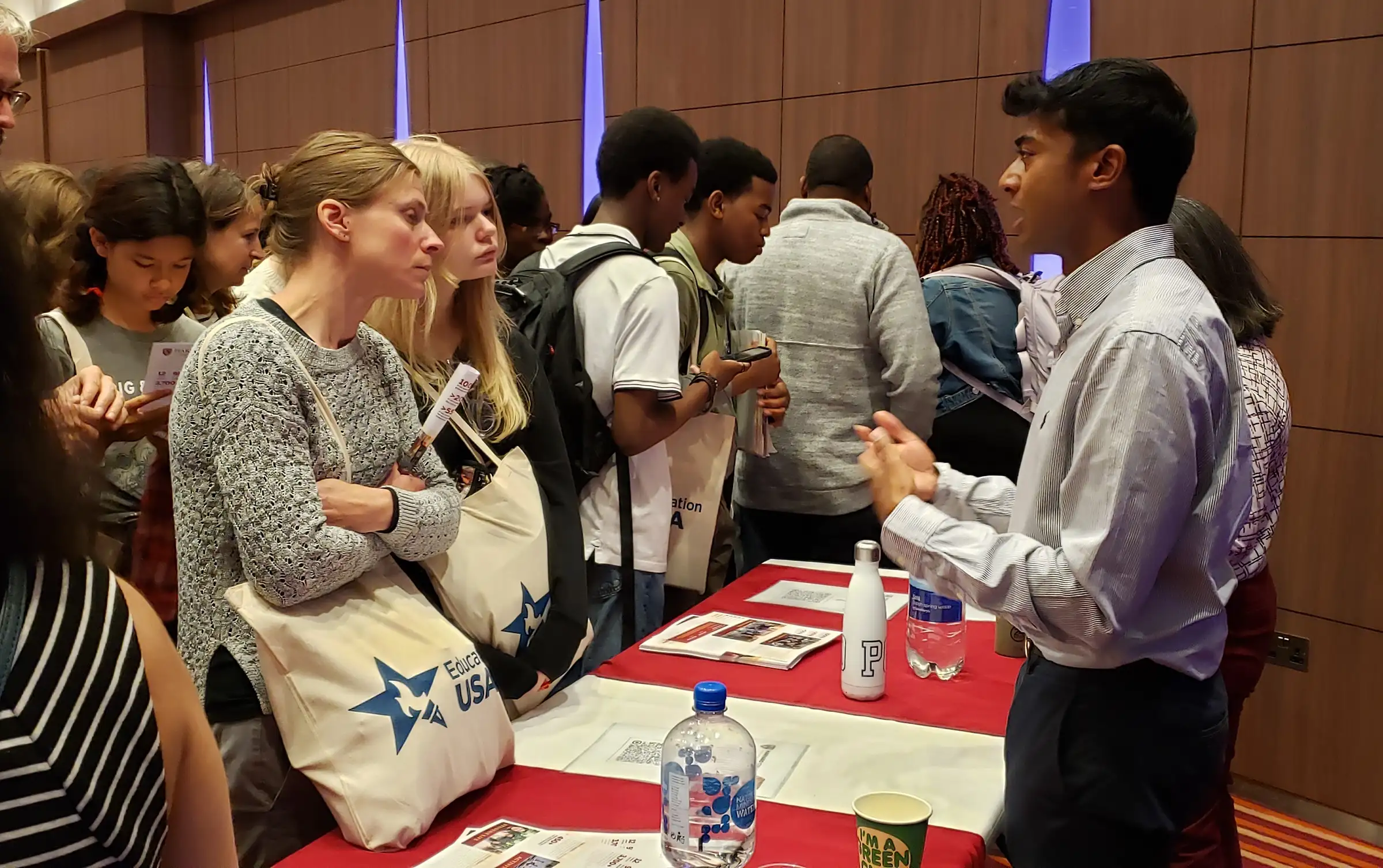
USA College Day, 27/28 September 2024
Organised by the US-UK Fulbright Commission, College Day offers students and parents the opportunity to meet with representatives from US universities in London. Held annually for more than 45 years, USA College Day is the largest American university fair in the UK and attracts more than 100 university exhibitors.
Dates
Either Friday 27 September (4:00 pm – 7:00 pm)
or Saturday 28 September (10:00 am – 3.00 pm)
You can register to attend the event for a maximum of two hours, either on Friday or Saturday, but not both. The event is the same on both days.
Registration
Register here for USA College Day.
You may select only ONE entry time over the two days. You will have two hours to spend at the fair, so select your time slot wisely and arrive promptly at your start time. College Day administration recommends arriving around 30 minutes before your slot, when you will wait outside the venue to enter. This time can be used to read through the event programme and plan your time in the fair.
Venue
ILEC Conference Centre, 47 Lillie Road, London SW6 1UD Nearest tube: West Brompton (District Line or Overground) Click here for a map.
Cost
Free to attend but you must register in advance. You will receive an email and/or text (if you consented) 24 hours in advance of the event which will be scanned to check you into the fair.
Tips for making the most of USA College Day
Get the most out of USA College Day by planning in advance.
- Once you have registered, check out the list of exhibitors and make a shortlist of the stands you wish to visit. Check the location of the stands on the floor plan and decide in which order to visit them.
- Explore the websites of all the colleges on your shortlist. Use the information on the website to decide which question(s) you want to ask when you speak to the college representatives. Students who have done their homework and ask pertinent questions will make a good impression to the college reps at each stand.
Come and see us at the Harvard stand!
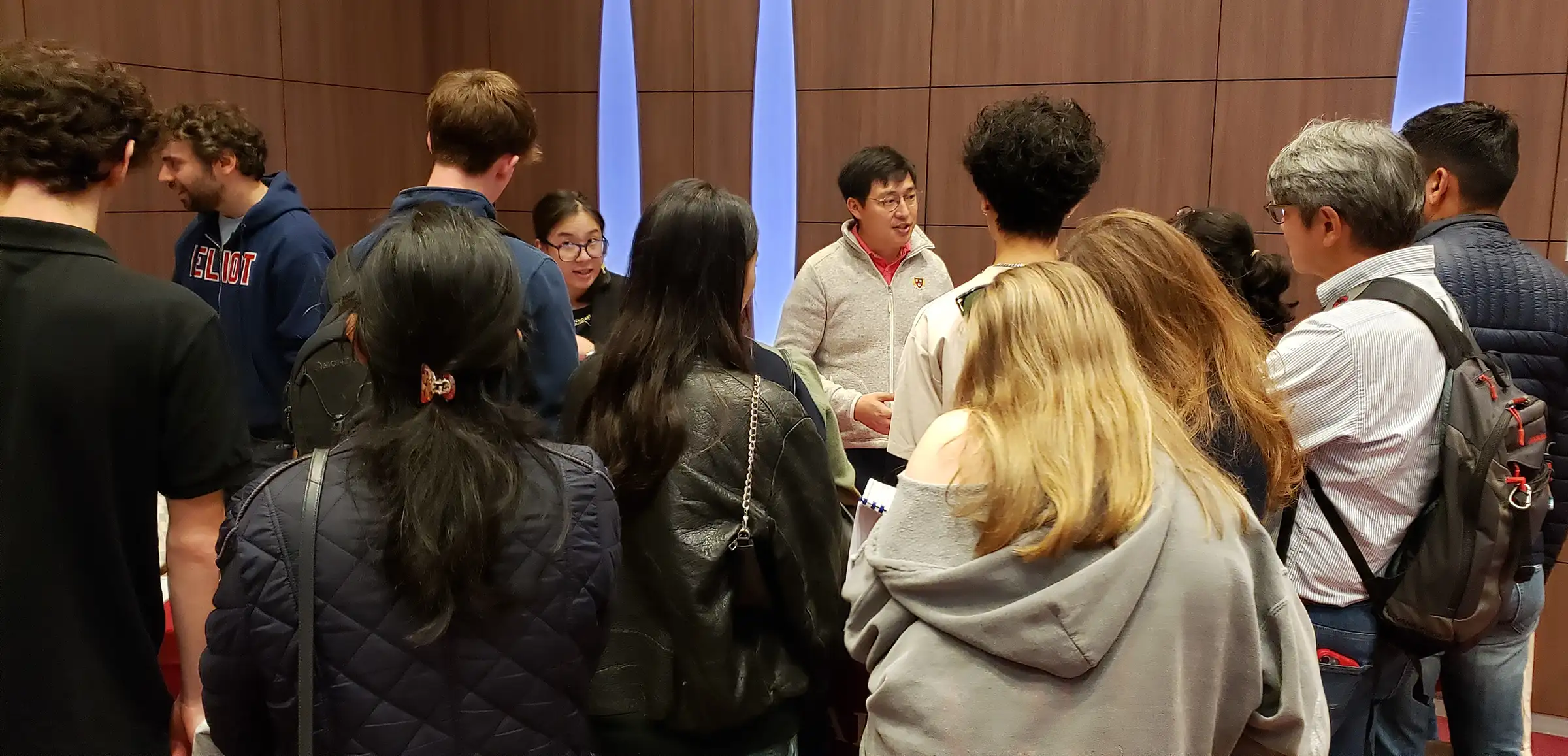
At different times over the two days, you will get the chance to meet: President of the Harvard Club of the UK (HCUK) Vicky Leung; HCUK Outreach Co-ordinator Stuart Gordon; and Harvard alumni Nick Shearer, Monica Mendiratta, John Culp, Andrew Larson, Emily Yorke, Helen MacLennan, Olga Fedorishcheva, Maya Joelson, and Adema Sangale. We would love to see you!
Frequently asked questions at the Harvard stand
Academic Program
Question: I’m interested in studying [name of subject] in the USA. What is Harvard like for the study of this subject?
Answer:
- Harvard is a world class institution for studying most subjects across the arts and sciences.
- When you apply to Harvard College, you don’t apply for a particular subject, you just apply to get in, and for the first 18 months, you can study whatever you like except for a small core curriculum that takes up 25% of your time. For the other 75% you can choose from 3,700 different courses across the arts and sciences.
- The idea is that you get to try out lots of different things before making a final decision about what will be your main study area, or ‘concentration’.
- When you choose your concentration (which other US colleges often call a ‘major’) there are 50 areas to choose from, including a ‘Special Concentration’ where you can create your own combination of courses.
What Harvard looks for in its applicants
Question: What is Harvard looking for in prospective students?
Answer:
- Admissions decisions are made through a ‘whole person’ review – we look at everything about you, not only your exam grades.
- Your extracurricular activities and personal qualities are just as important to us as high academic achievement.
- Admission to Harvard is not a reward for what you have done in the past – it is our investment in what we believe you are capable of doing in the future.
Application timeline
Question: When is the best time to apply?
Answer:
- Applying to US universities is a marathon, not a sprint, but is perfectly manageable provided you plan in advance and start early.
- Refer to the application timetable on our website for the specific tasks you need to undertake in each school year.
- If you intend to take a gap year, the best time to apply is while you are still at school and have the support of your teachers and advisers. If you are then offered a place at a US college, you can defer your entry and start your degree the following year.
Application components
Question: How do I go about applying to Harvard? What application materials do I need to submit?
Answer:
- Although there are different types of application form, UK students will almost certainly use the Common Application Form (or ‘Common App’ as it is usually known), as it is accepted by the largest number of US colleges. It is an online form that goes live each year on 1st August, and UK students should complete as much of it as possible during the summer holidays at the end of Year 12 (England and Wales), S5 (Scotland), or Year 13 (Northern Ireland).
- The Common App includes a Student Essay, which is the American equivalent of the UCAS Personal Statement. But the style of the Student Essay is very different from the type of essay an applicant would write for UCAS, as it is all about the student as a person, not about the subjects he or she might study. So applicants should always read through the sample essays on our website before starting to draft their own.
- If you are particularly talented in music, dance, art or writing, it is fine to include videos of your performances, art portfolios and publications as part of your application.
- Standardised tests are now compulsory for applicants to Harvard College. You can take either the SAT or the ACT, it doesn’t matter which. To decide which test is better for you, take a free online practice test in both of them and go with whichever one gives you the higher score.
- Teachers who are asked by students to provide references should look at the sample teacher references provided on the Harvard UK Admissions website.
- The references need to be different in style and content to the type of reference you would write for a UK university.
- Because an applicant’s personal qualities are an important part of the admissions process, a selection of UK applicants are offered an interview with a volunteer who already holds a degree from Harvard. Face to face interviews take place in a public space such as a coffee shop. They can also take place remotely by Zoom, WhatsApp or phone. It is more of a wide ranging conversation than an interview, and allows students to talk about their interests, ambitions and challenges, and to find out more about what life is like at Harvard.
Financial aid
Question: How much does it cost to go to Harvard?
Answer:
- Harvard has a generous financial aid program, and international students are treated in the same way as US citizens. All admitted students have access to financial aid if they need it, and the amount of money each student is offered is means-tested against family income.
- For family incomes of £65,000 per year or less (at current exchange rates), the student will almost certainly pay nothing. The university will pay for tuition fees, food, housing, and also provide a book allowance and travel allowance. Students on full financial aid will also receive a $2,000 cash grant as soon as they arrive to buy the equipment they will need to start their degree. Additional funds are available for studying abroad in the summer holidays.
- For family incomes of between £65,000 and £115,000, the family will be expected to pay between 0% and 10% of their income towards university costs, depending on their other assets.
- Families with incomes above £115,000 will be asked to pay proportionately more than 10% based on their individual circumstances.
- Financial aid is given in the form of grants, not loans, so students do not have to pay them back after they graduate.
Housing
Question: Where will I live if I go to Harvard?
Answer:
- All students are guaranteed housing on campus for all four years. Harvard is very keen on creating a thriving campus community.
- First year students all live in dorms on Harvard Yard – right in the hub of the university.
- In years 2, 3 and 4, students move to one of 12 residential houses. Each house has its own library, dining hall, gym, and social activities, and all of them are within walking distance of Harvard Yard.
Life outside the classroom
Question: What is Harvard like for extracurricular activity?
Answer:
- Students are expected to become fully involved in the life of the university, and there is a vast range of activities to choose from, including over 450 university recognised student clubs, 42 premier league sports teams, 60 student productions a year in drama and dance, a daily student newspaper (Harvard Crimson) and 80+ community service groups.
We look forward to seeing you at USA College Day on 27 or 28 September!
Students sample classes across campus, offering them a taste of what lies ahead
Marking the start of the new academic year, thousands of Harvard students set off for their first class earlier this month. Photographers from the Harvard Gazette were on hand to record some of the classes in action. A selection of photos are shown below – click here to see the full article.
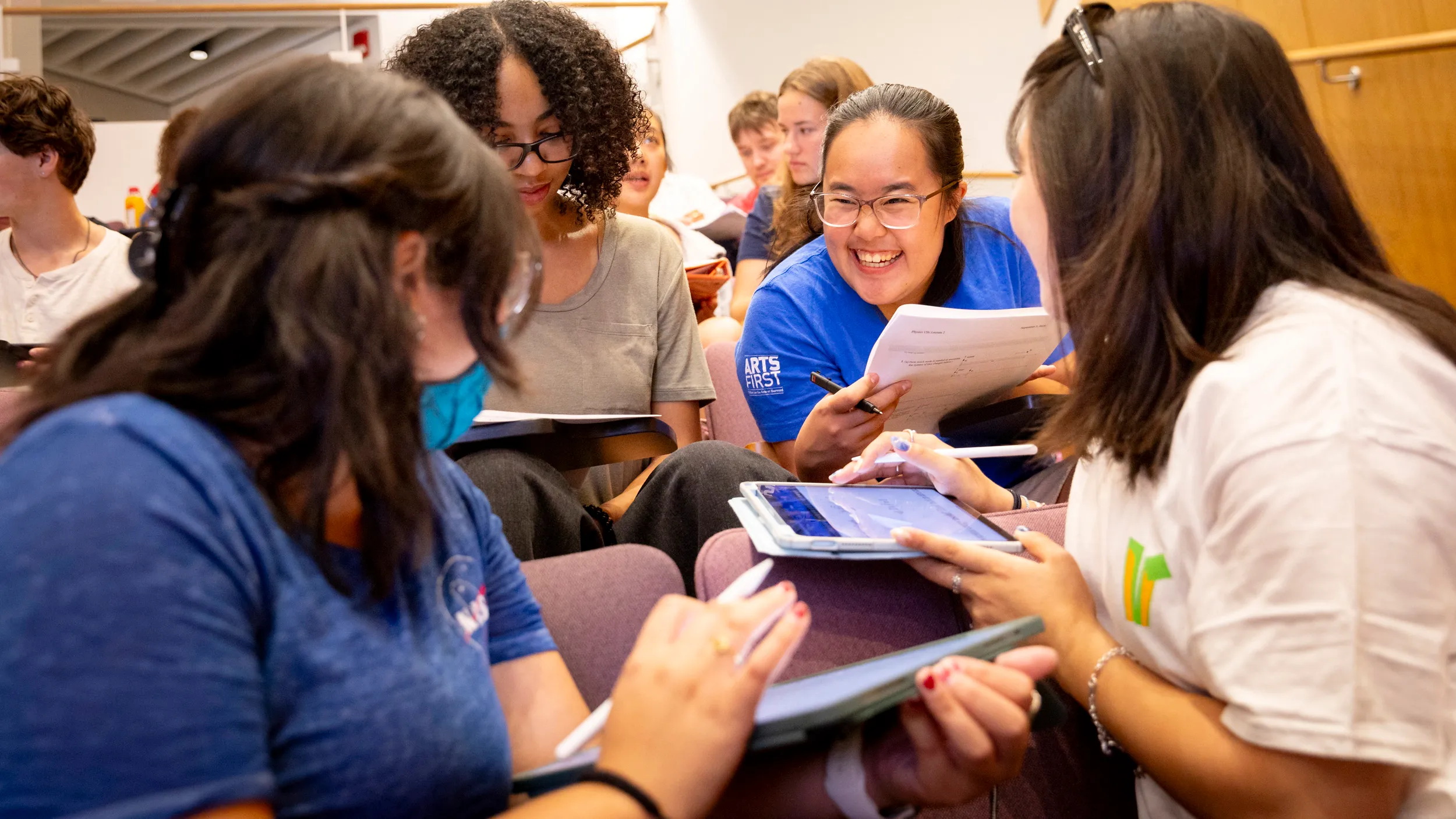
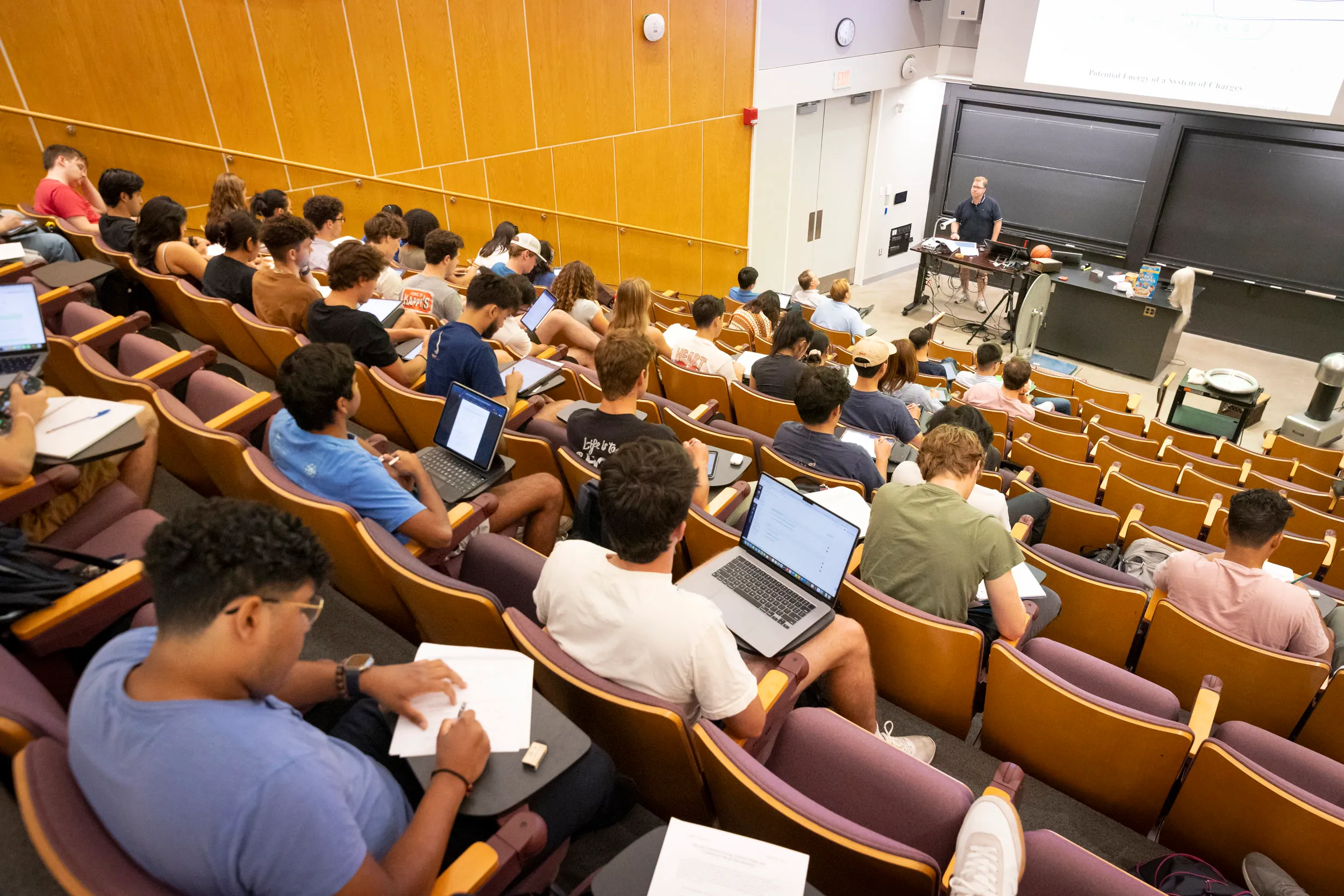
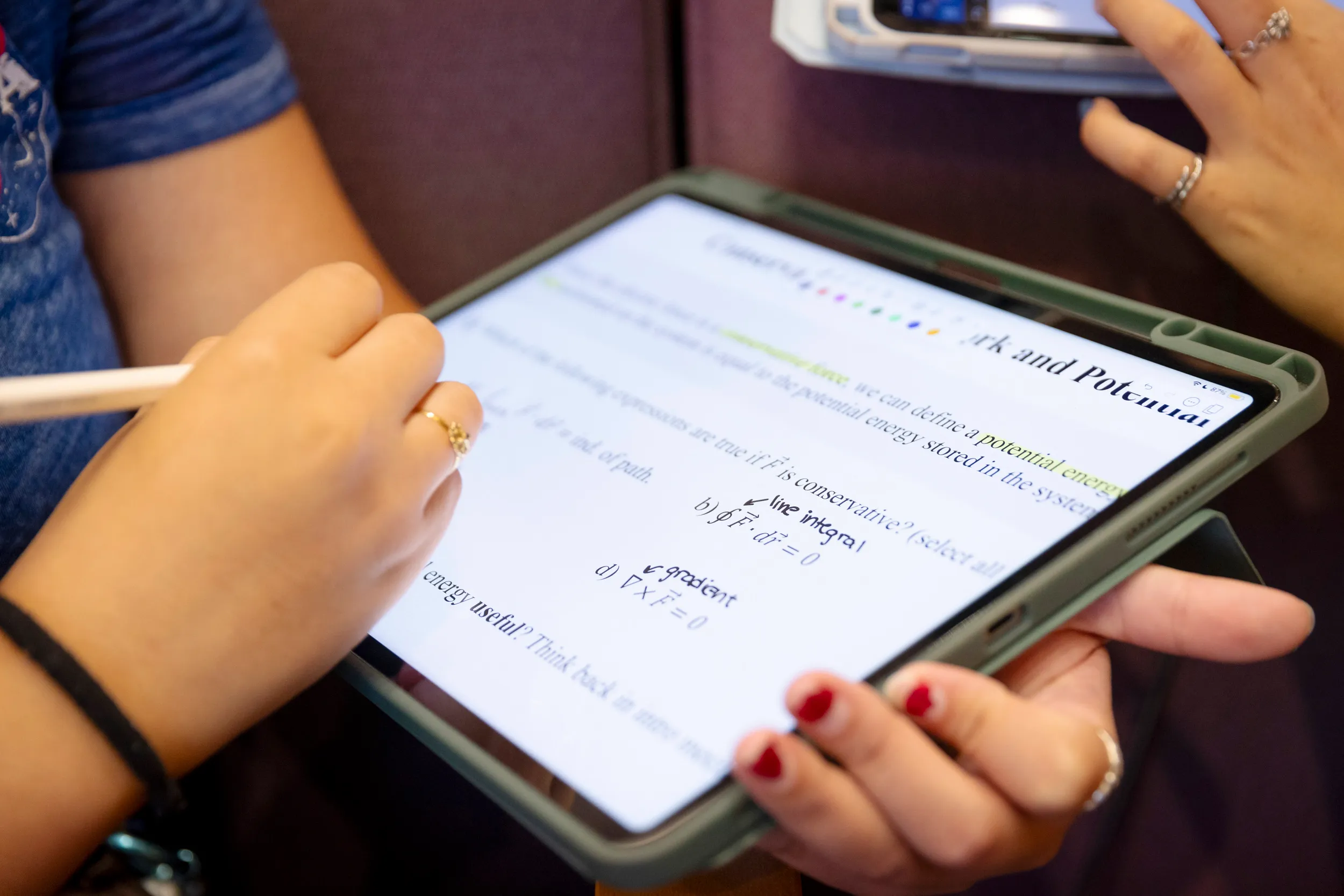
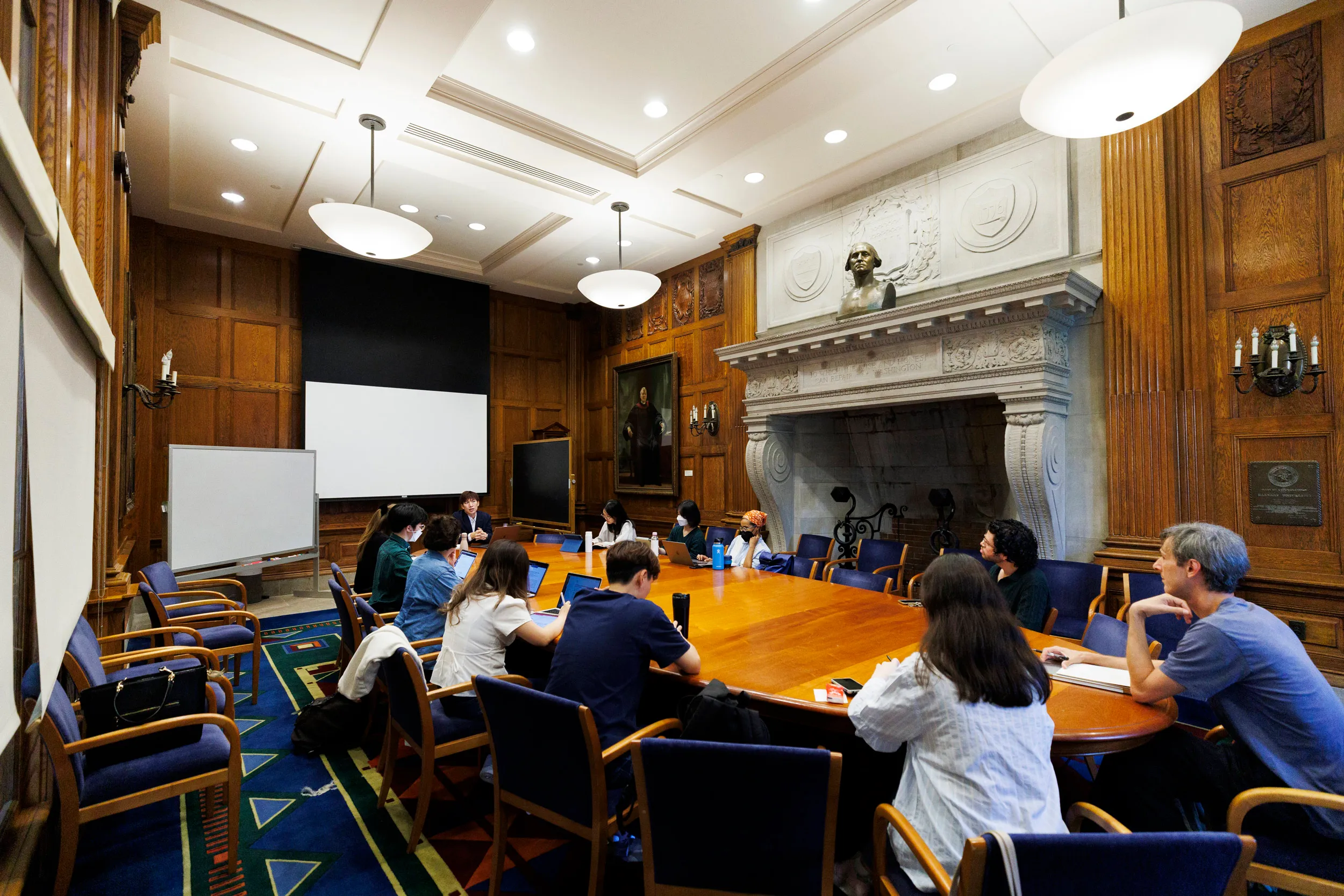
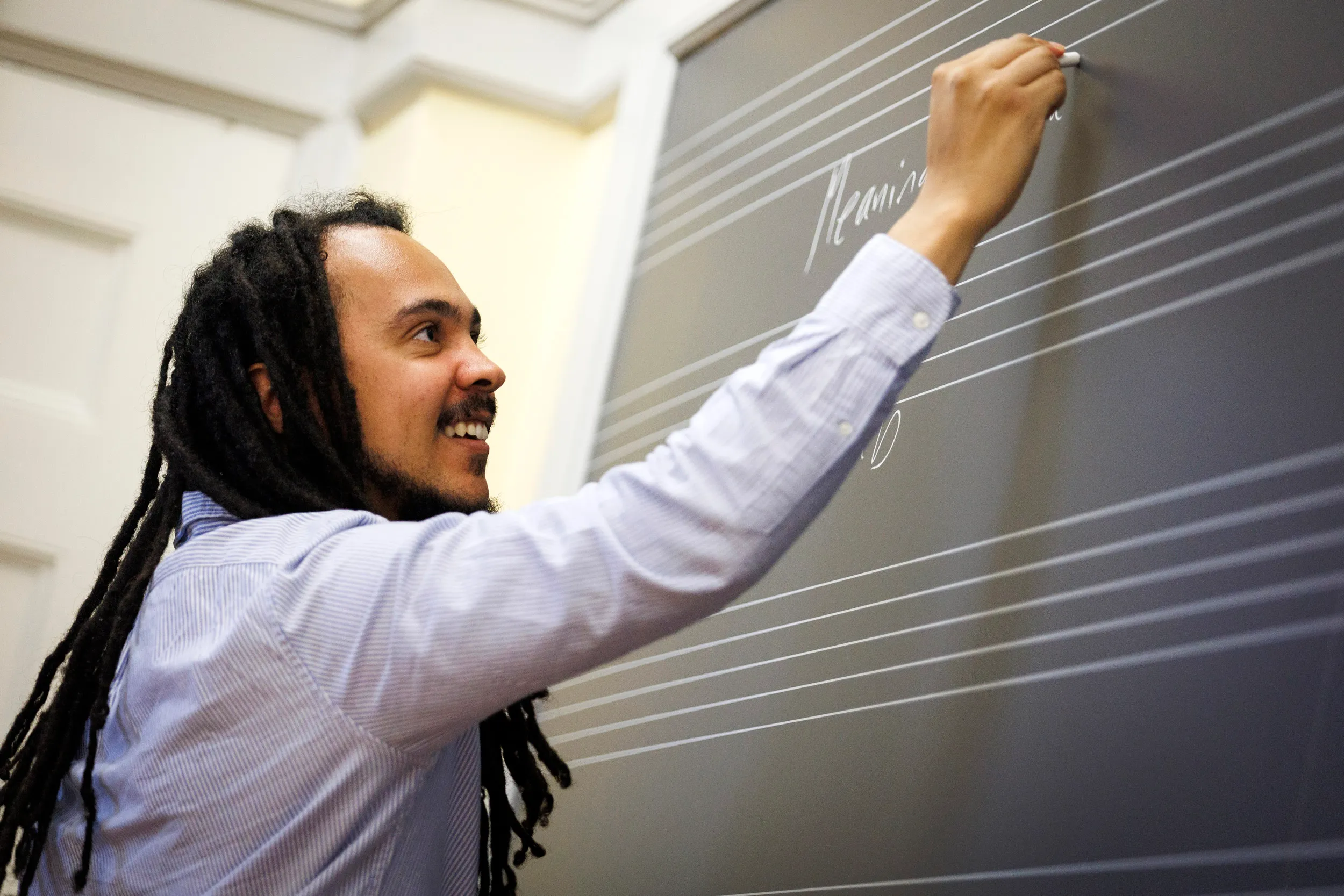
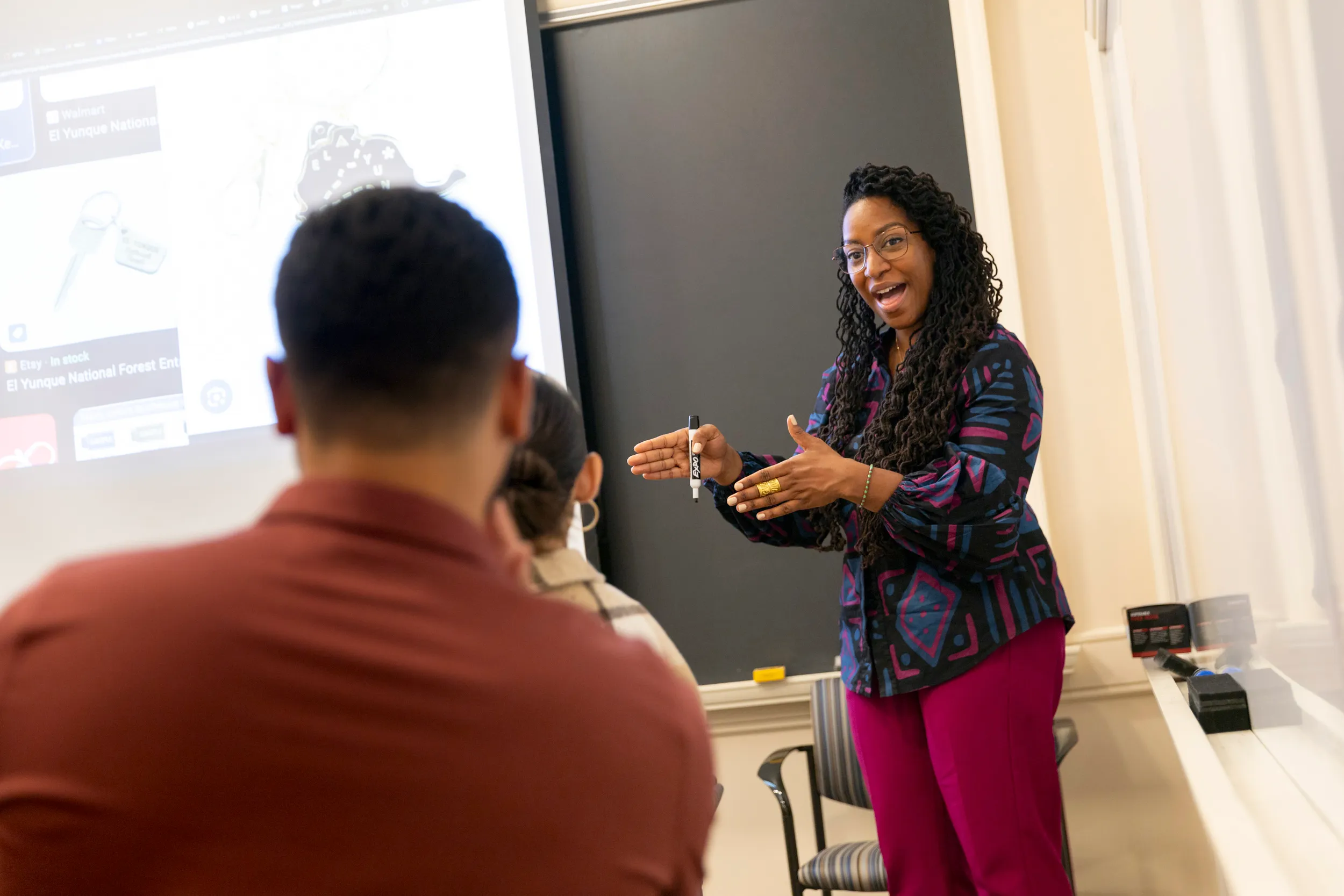
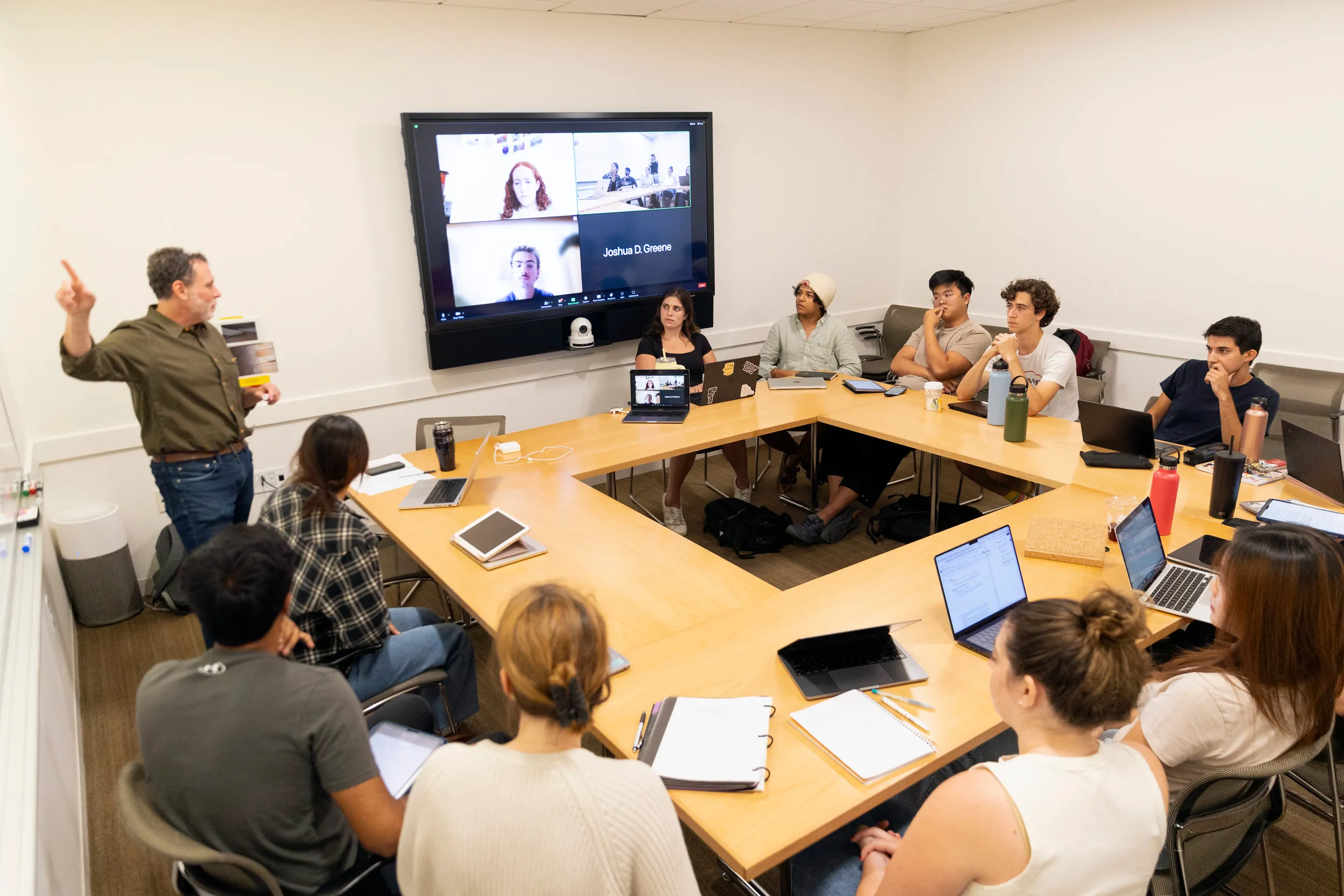
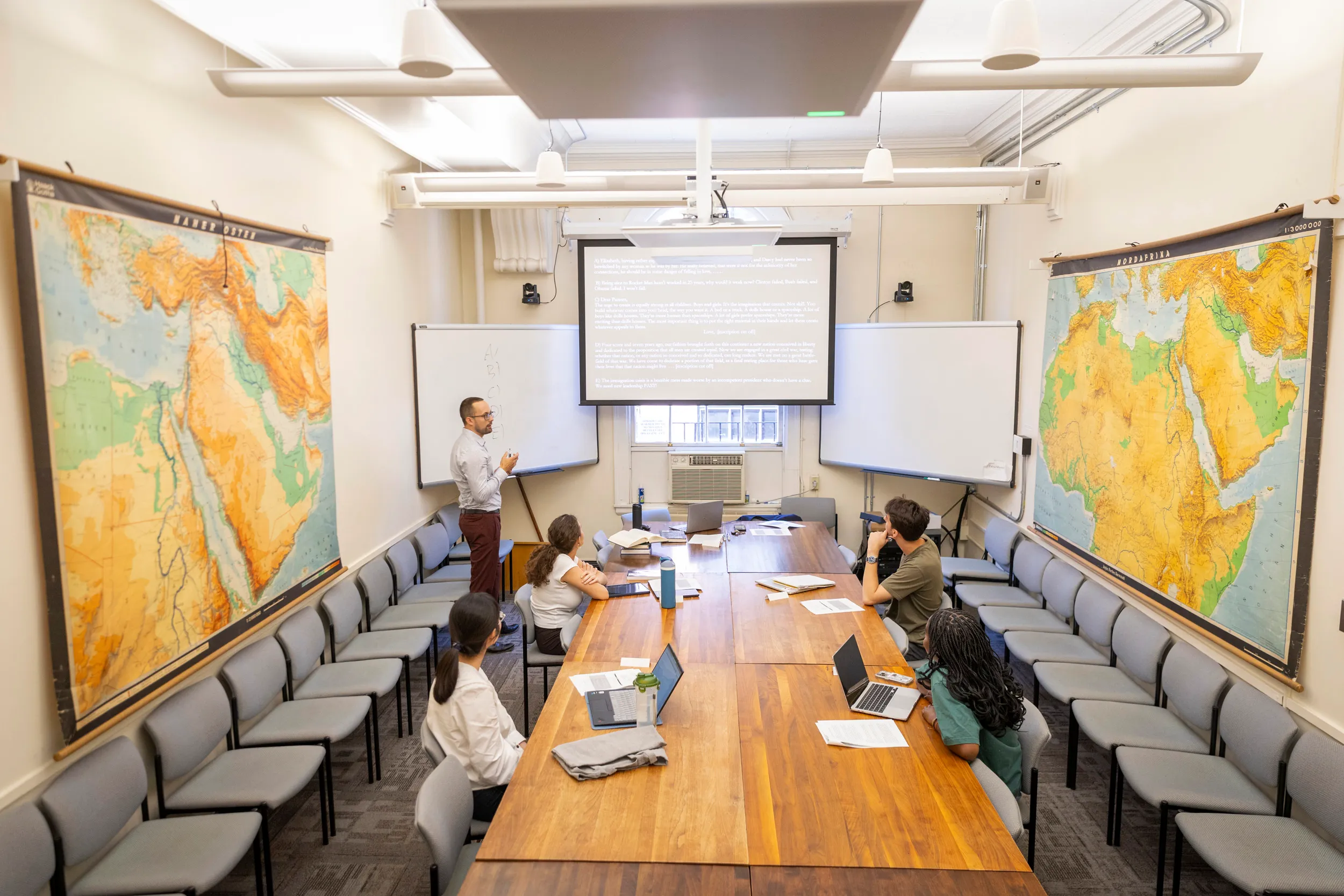
Welcoming ceremony for Class of 2028
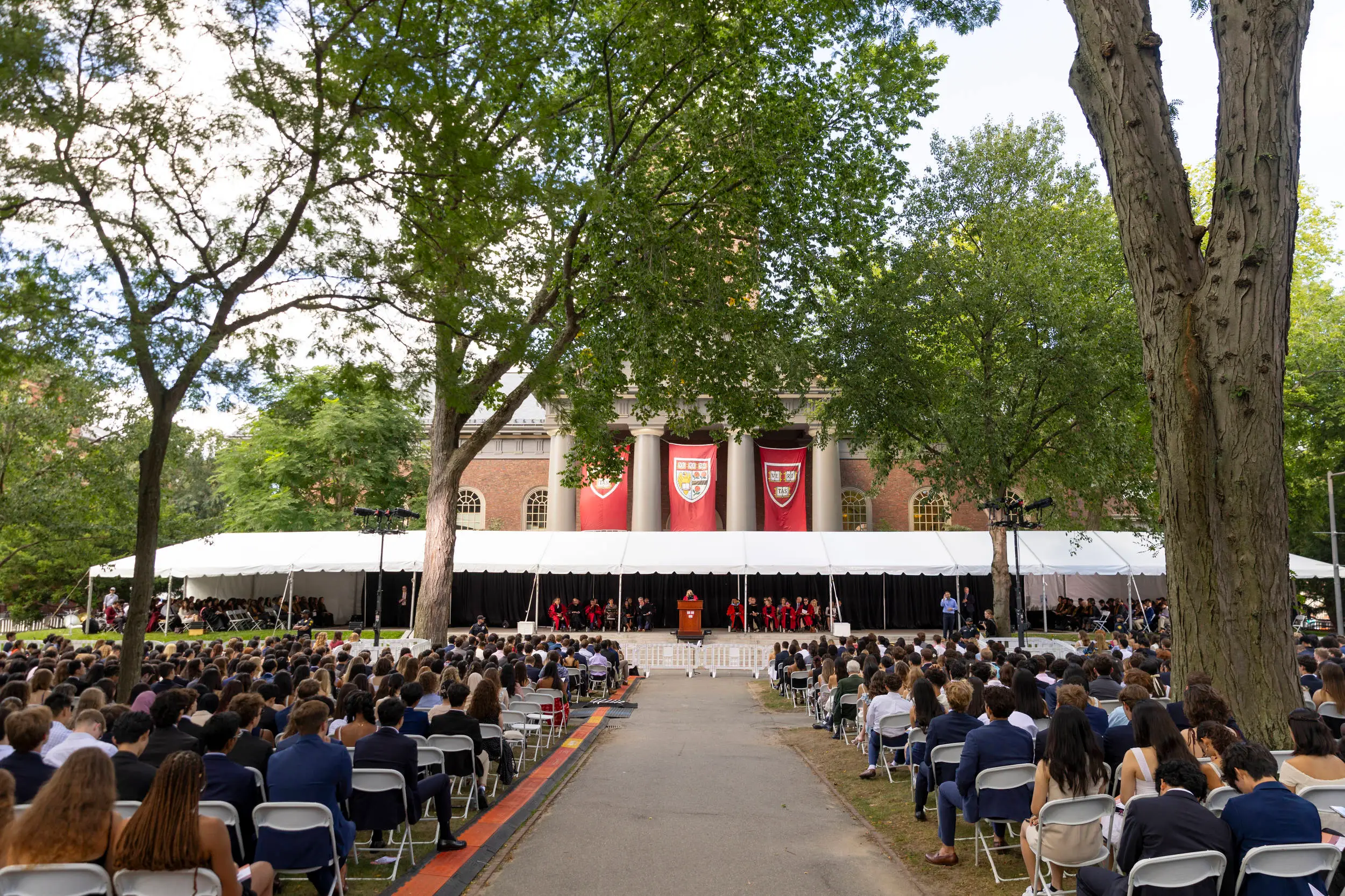
An economist, physician, and expert on health policy, Alan Garber was named Harvard’s 31st president last month after serving as interim leader since January. In his first address to incoming students, the Harvard Gazette reports that he made a forceful case for viewpoint diversity as one of the University’s core aims — and strengths.
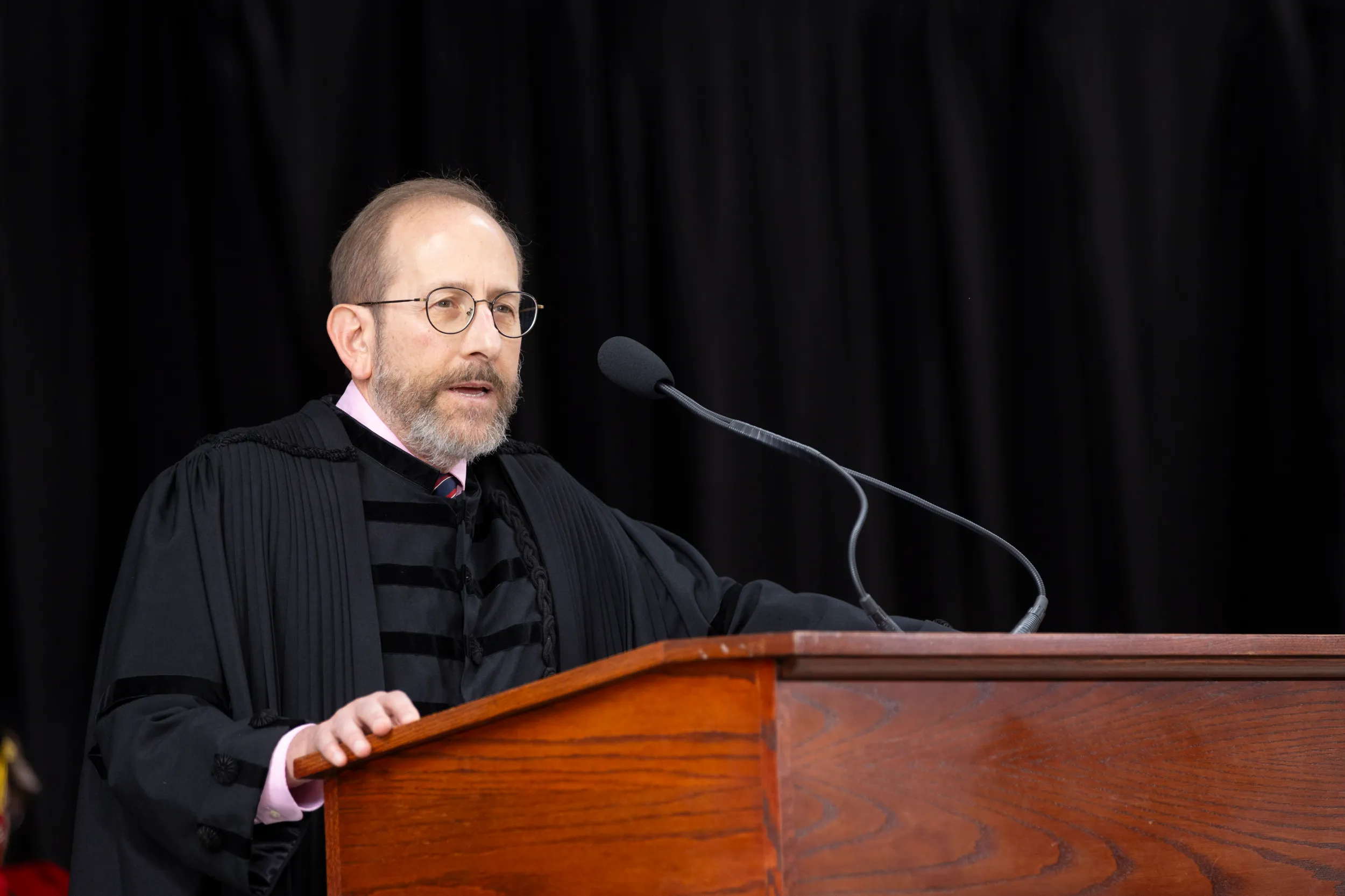
“We stand for seeking, supporting, and sustaining excellence from as broad and as diverse a pool of talent as possible,” he said. “That is the beauty of the University. It attracts and supports interesting and ambitious individuals with different experiences and perspectives, individuals who challenge one another by virtue of being together in community. We acknowledge and celebrate that beauty — and the beauty of pluralism — with our willingness to encounter beliefs that are not our own, to be curious and respectful, to be genuinely attentive despite our tendency to be pulled in a million directions at once.”

If you enjoyed reading this newsletter and wish to receive future newsletters, click here to subscribe.